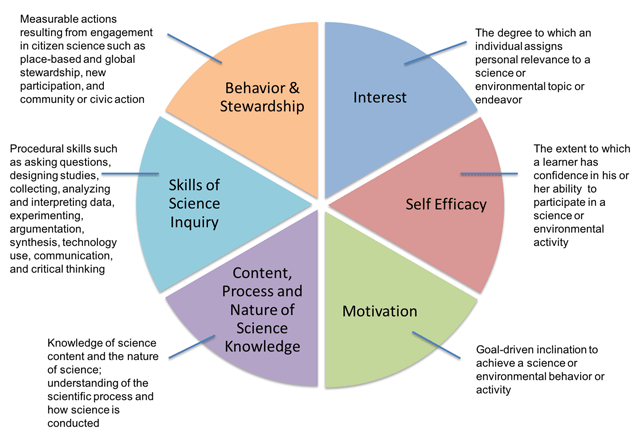In the previous section we have introduced you to the three dimensions 1) "individual participants", 2) "socio-economic and ecological systems" and 3) "science and individual scientists". But what does this mean in practical terms? In this next section we will
go into more detail and you will see that this all becomes much clearer then.
A large proportion of citizen science projects still does not evaluate the outcomes for individual participants. Amongst those who investigate the projects’ impact on individual citizens, the most common outcome documented so far is the one of gaining
new knowledge. We find two different areas of knowledge gains:
Knowledge on the subject under investigation: e.g. in a project related to climate change, participants can gain new knowledge on the origins of climate change, the consequences, and how to fight against it.
Scientific inquiry skills and knowledge on the research process: participants can for instance learn how to set up a scientific inquiry process, how to collect data, guarantee the data quality, share scientific results.
In addition to knowledge gains we can find more transformative effects of learning:
changing attitudes towards a specific topic, e.g., towards more environmentally sustainable resource management;
active promotion of a certain topic amongst one's own social network, e.g. convincing others to protect their environment;
changing behaviours, like taking more care for one's own environment, changing daily routines to avoid pollution etc.increasing
self-efficacy perceptions which indicate that a person thinks he/she is capable of actively contributing to science or protecting the environment

Taken from: Framework for Articulating and Measuring Individual Learning Outcomes from Participation in Citizen Science. (taken from Phillips, T., Porticella, N., Constas, M. and Bonney, R., 2018. A Framework for Articulating and Measuring Individual Learning Outcomes from Participation in Citizen Science. Citizen Science: Theory and Practice, 3(2), p.3. DOI: http://doi.org/10.5334/cstp.126)